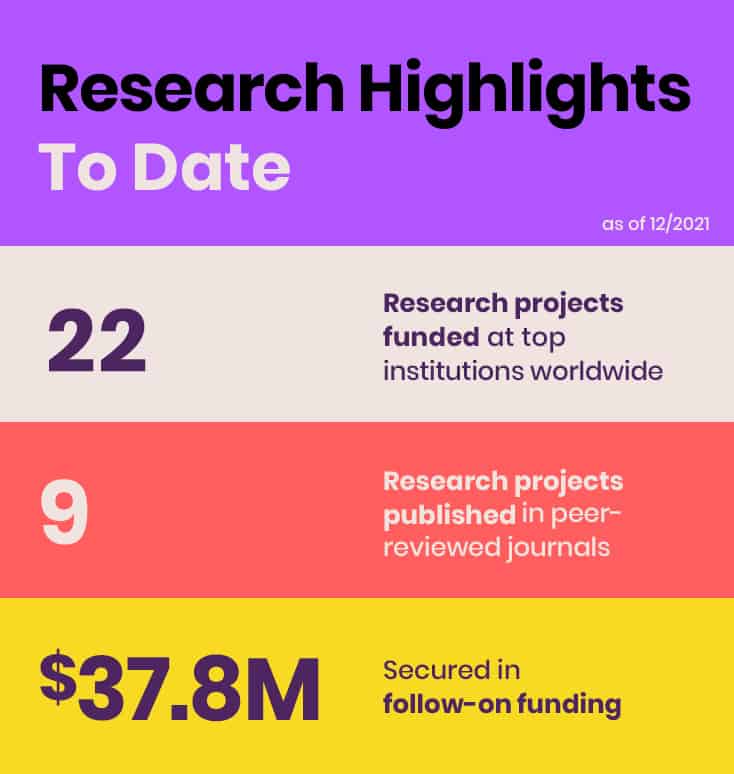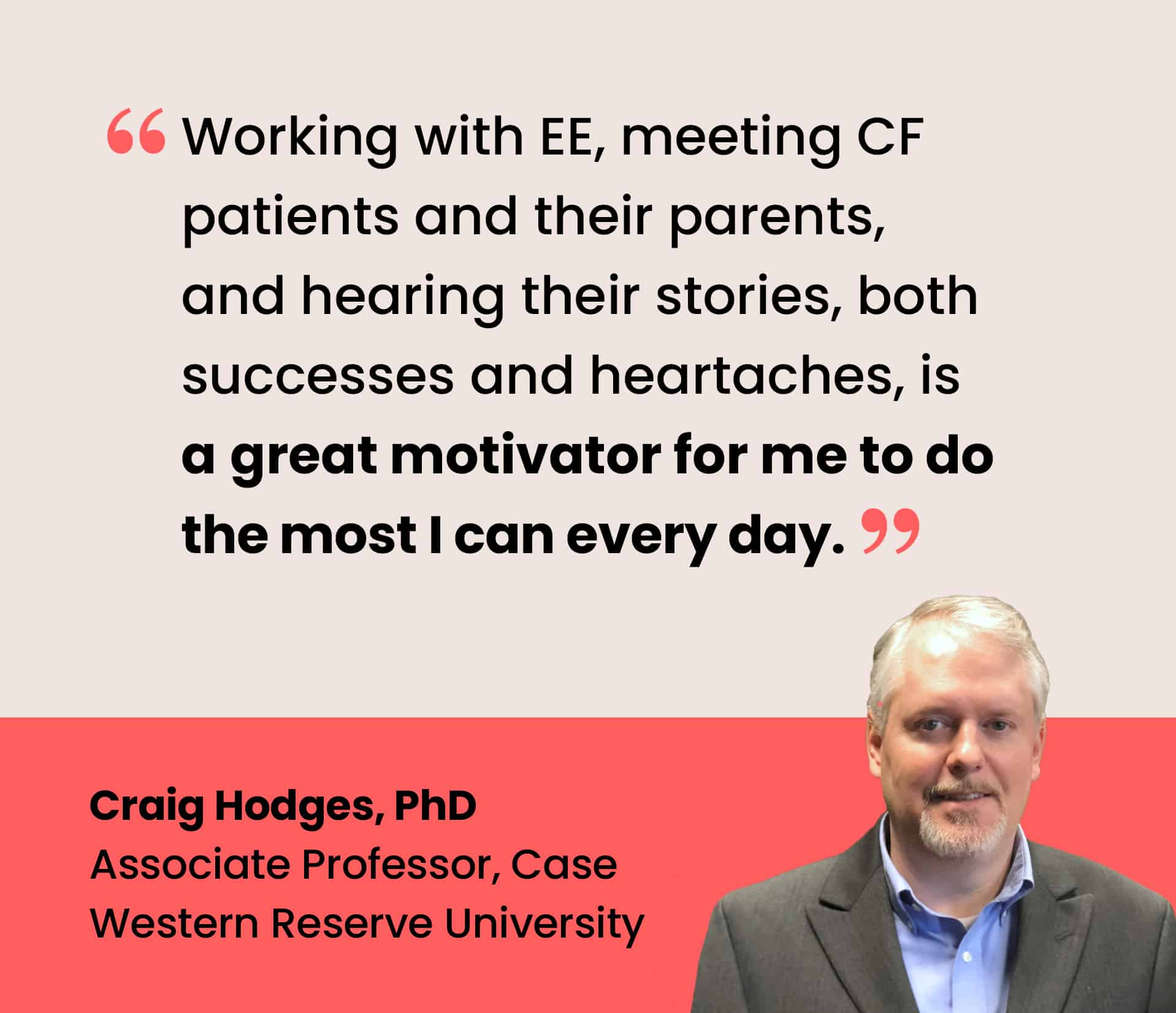
Grants and Strategic Investments
Accelerating Lifesaving Therapies Through Research Grants
EE’s research and therapeutic development priorities are twofold: developing therapies for individuals that are part of the outlying 10% of the CF community that do not benefit from existing mutation-targeted therapies, with a focus on CF nonsense mutations; and developing approaches that “buy time” for people living with CF, including by targeting infections or inflammation with a focus on antimicrobial resistance and pathogens that present an unmet need for individuals with CF. In 2021, EE continued funding five leading research teams that are advancing critical research in these areas and have the greatest potential to reach people with CF quickly.

Four of these grants support the development of anti-infective bridge therapies to sustain people while they wait for breakthrough therapies to advance. More specifically, each focuses on innovative approaches to treating bacterial-resistant infections and pathogens that present an unmet need for individuals with CF. These approaches are especially critical for those that do not benefit from existing mutation-targeted therapies for whom bacterial infections remain an unchecked threat. In fact, while these therapies are designed for the CF community, they are applicable far beyond the CF community to the millions of people worldwide who deal with antibiotic-resistant infections.
The projects include:
- Development of a phage lysin to kill antibiotic-resistant MRSA in the nose and lungs of individuals with CF (Vincent A. Fischetti, PhD, The Rockefeller University)
- Development of two novel, personalized methods to treat MRSA, including a synthetic DNA vaccine as well as DNA-engineered antibodies (Ami Patel, PhD, The Wistar Institute)
- Development of a panel of phage targeting MRSA in CF lungs, advancement of MRSA phage cocktails, and dissemination to physicians and researchers to facilitate phage therapy (David T. Pride, MD, PhD, Robert ‘Chip’ Schooley, MD, Steffanie Strathdee, PhD, University of California San Diego Center for Innovative Phage Applications)
- Development of phage therapies that harness bacteriophages that target and kill Staphylococcus aureus, a multi-drug resistant bacteria (Benjamin Chan, PhD, Jonathan Koff, MD, Paul Turner, PhD, Yale University)
EE also continued funding a grant designed to support the development of future genetic therapies that target nonsense mutations:
- Development of mouse models with the W1282X genetic mutation to serve as a tool for the larger scientific community in the testing of new therapies. (Craig Hodges, PhD, Case Western Reserve University)
Mouse models serve as a critical, catalyzing tool for drug discovery and development and there were previously no mouse models with this particular nonsense mutation.

In addition to ongoing funding of existing grants, EE is forging ahead in pursuing new research to advance through its grant funding program. In 2021, EE began accepting applications for its sixth round of grant funding. Of the 11 research teams that submitted letters of intent, six were invited to submit a full application. The applications include cutting-edge research on CRISPR-based genomic editing, gene therapy, phage therapy, nanoparticle delivery, and development of animal models. EE expects to fund up to five of these projects.
One of the applicants, Mitochon Pharmaceuticals, is a 2021 EE mini-grant recipient that conducted a promising proof-of-concept pilot study to determine whether their anti-inflammatory therapeutic approach for neurological disorders reduced inflammation in an animal model of CF. The results suggested that more research was needed, thus the application for consideration in EE’s Round 6 research funding.
EE also updated its research grant contracts and grant application instructions this year to include profit-sharing terms for the first time and gathered guidance and insight from legal counsel on novel funding policies, data sharing, and intellectual property for medical research organizations. The changes reflect EE’s maturing funding strategies and mechanisms.
Positioned for the Future
